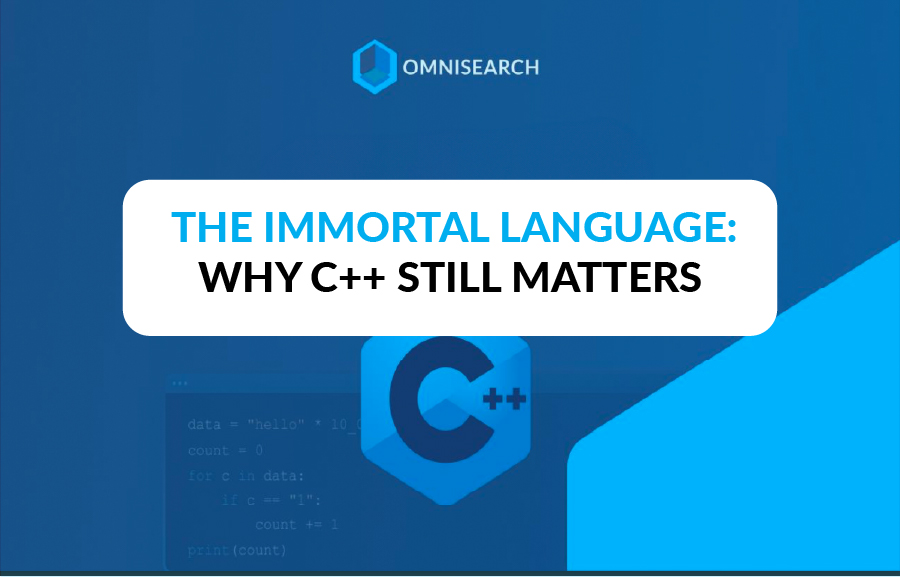Stargate AI: High Hopes, Higher Stakes

Patricia Butina
Marketing Specialist
Published:
January 24, 2025
Topic:
Insights

When a project like Stargate lands on the world stage, you can’t help but take notice. A $500 billion promise to build AI infrastructure in the U.S., unveiled at the White House with tech giants standing shoulder to shoulder, is nothing if not ambitious. It’s a shot at the moon of our age, glittering with potential yet dogged by questions of feasibility and execution.
For Omnisearch, a Canadian AI startup with a footprint in the EU, the Stargate initiative is a bit like watching someone launch a luxury yacht: impressive, but will it float? There’s cautious optimism here, not just for what Stargate could achieve but for the signal it sends about global investment in AI. Yet, optimism tempered by realism is the only sane approach.

A Massive Statement of Intent
Stargate’s announcement is undoubtedly bold. Led by OpenAI, Oracle, and SoftBank, the initiative pledges to build out a vast network of data centers and the energy infrastructure to power them. The initial $100 billion is reportedly secured, with another $400 billion promised over the next four years.
What’s exciting here is the sheer scale of the ambition. Stargate positions the U.S. as a hub for AI infrastructure, promising job creation, technological advancements, and economic growth. For Canadian and EU companies, it’s a clear signal: AI is becoming the foundation of the next industrial revolution. Such moves push everyone in the ecosystem to step up their game, and that’s not necessarily a bad thing.

The chart highlights the USA's dominance at 34.6%, showing its leading role in the topic of interest, far outpacing individual contributions from other countries. The significant 39.5% under "Others" emphasizes global diversity, but the USA remains the clear frontrunner in engagement. Source: Statista.com
A Shiny Opportunity (with dents)
However, the announcement wasn’t without drama. Elon Musk, never one to bite his tongue, cast doubt on whether the money is really there, claiming that SoftBank has far less security than stated. While OpenAI’s Sam Altman fired back confidently, the lack of financial transparency raises eyebrows. The initiative’s apparent reliance on private funding, without clear details on how it will be deployed, invites skepticism.
Even so, projects of this magnitude often take time to iron out. For those of us working in AI, the attention and investment Stargate generates could create ripples across the industry, inspiring public and private sectors alike to push boundaries.

Why It Matters for Canada and the EU
For Canadian AI startups, Stargate is a mixed blessing. On one hand, it raises the stakes in the global AI race. The U.S., already a dominant force, is doubling down, and Canada’s "AI supercluster" strategy now faces stiffer competition. On the other hand, the sheer size of Stargate could lead to spillover benefits like technological advancements, research breakthroughs, and possibly even partnerships that cross borders.
In the EU, where AI regulation leans heavily on ethics and sustainability, Stargate’s focus on infrastructure feels like an important but incomplete move. While the U.S. builds the foundation, the EU can differentiate itself by building frameworks that ensure responsible AI development. Canada, positioned between these two poles, has an opportunity to bridge the gap.

An Industry Milestone With Warnings
One aspect that can’t be overlooked is the environmental and ethical footprint of this initiative. Data centers are notorious for their energy and water consumption, and Stargate’s massive scale amplifies these concerns. Trump’s promise to “help a lot through emergency declarations” to fast-track permitting sounds like a shortcut that may bypass critical safeguards.
Still, there’s room for optimism. OpenAI’s involvement signals that the project is about raw infrastructure but with more focus on creating cutting-edge AI capabilities. If done thoughtfully, Stargate could serve as a model for building AI infrastructure that aligns with global climate goals and ethical standards.
Big Bets, Big Risks, Big Payoffs
It’s tempting to view Stargate as a flashy PR move, but that would miss the point. This initiative is a serious statement of intent, one that acknowledges AI’s transformative potential. While the execution will be messy (and the Musk-Altman feud guarantees entertaining headlines), the project’s vision is worth rooting for.

For Canadian and EU startups, Stargate should inspire ambition rather than intimidation. The U.S. is playing a high-stakes game, and while it may not have all the pieces figured out, its willingness to invest big could create new opportunities for collaboration, competition, and growth.

The Takeaway
Stargate may not be perfect, for its financials are murky, its environmental impact uncertain, and its execution politically charged. But one must admit, it’s a bold move in the right direction. For those of us outside the U.S., it’s a reminder to stay creative, innovative, and focused on what we do best.
AI’s golden age might not come gift-wrapped in $500 billion, but Stargate is proof that the industry is heading somewhere big. As for Canadians and Europeans, our challenge isn’t just to keep up and copy what big ones are doing, but to put more focus on leading in ways that matter. The future is being built, and there’s room for all of us to help shape it.







